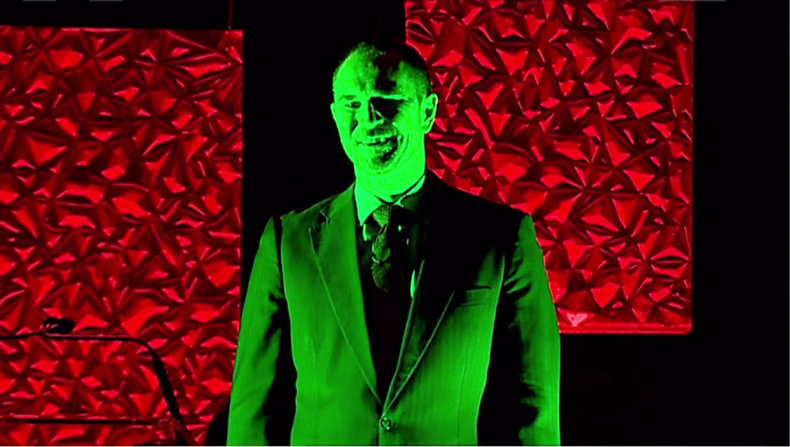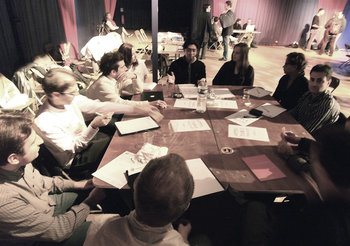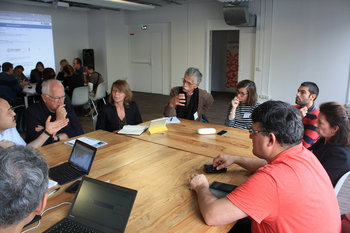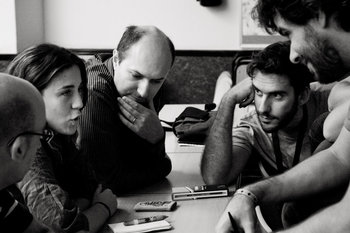
Disinformation vs Information
Choosing a middle between disinformation and information. For example, an authoritative source of scientific knowledge states that a particular pesticide can cause a serious disease. A collection of unauthoritative studies sponsored in one way or another by the manufacturer of the chemical finds that the pesticide is harmless. Based on this, a farmer decides the truth must be in the middle -- the pesticide must be a little unhealthy but not capable of causing the serious disease.False Dichotomy
Failing to see that a false dichotomy is untrue and then choosing a middle solution between sides. For example, a politician who chooses a middle between the false dichotomy security vs privacy might end up with a policy that sacrifices privacy and is insecure.Abilene Paradox
The abilene paradox is the observation that the decisions of a group often result from compromises that every individual member of the group views as irrational. For example, one side in an argument wants to invest $20 million to buy land for a flagship retail location in a posh area of Tokyo. The other side wants to spend $4 million to rent a location in the same neighborhood on a two year lease. They comprise with a solution to spend $8 million to buy land in a non-prime neighborhood in Tokyo. Everyone views this as irrational as a posh location is essential to the firm's brand but it is accepted by the group using a process of comprise between the two proposals.False Balance
Analysis that tries to be objective by balancing a valid argument with an invalid argument. For example, "some say the world is approximately spherical while others say it is flat, it is hard to say which side it right."Pointless Compromise
A compromise that doesn't solve a problem. For example, a small island depends on tourism for its economic survival. All tourists to the island come to try to catch a glimpse of a rare endangered species on the island. In order to save the species, the island needs to preserve its forest by halting further development and lower the speed limit of vehicles to 30 miles/hour. They decide that middle ground is the best way so they preserve the remaining forests but do not reduce speed limits. The animal goes extinct because both measures were needed to save the species.| Overview: False Compromise | ||
Type | ||
Definition | The unjustified assumption that the optimal choice lies in the middle between two extremes. | |
Also Known As | Argument to ModerationGolden Mean Fallacy Middle Ground | |
Related Concepts | ||























